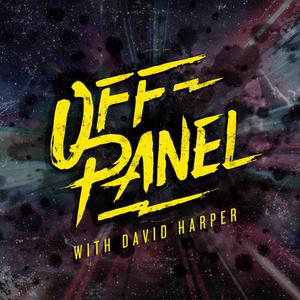
Off Panel: A Comics Interview Podcast
SKTCHD
- 1 hour 15 minutesOff Panel #483: Absolutely Ultimate Crisis with Deniz Camp
Writer Deniz Camp joins the show to talk about his career and his current slate of projects. Camp discusses creator realities, being a Barnes and Noble kid, JLA's impact, the power of restrictions, the impact of experiencing different cultures, varied influences, what made him want to make comics, 20th Century Men's impact, working on PanelxPanel, collaborating with artists, what guides him as he decides on projects, figuring Ultimates out, swinging for the fences, the upcoming Assorted Crisis Events, how he approaches his own writing, being musical with his work, the book's title, navigating the darker side of comics, what he wants his future to look like, and more.
20 January 2025, 12:00 pm - 1 hour 11 minutesOff Panel #482: The Devils You Know with Charles Soule and Ryan Browne
The writer and artist behind the recently launched The Lucky Devils, Charles Soule and Ryan Browne, join the show to talk about the year their new Image Comics series and the path to bringing it to life. Browne and Soule discuss new release anticipation, how their projects evolve, the rules of these worlds, what they learned from Eight Billion Genies, how they balance each other out, the structure of 8BG, its Wishworld one-shot, what made them want to develop The Lucky Devils, its leads, the darkness of the series, how their collaborations evolve, the sins that tempt them, promotional efforts, how they continue to build, and more.
13 January 2025, 12:00 pm - 1 hour 21 minutesOff Panel #481: The Spice Bag with Patrick Brower
Retailer Patrick Brower joins the show to talk about the year that was in his Chicago comic shop, Challengers Comics + Conversation. Brower discusses the slow open to years, the top comics of the year at Challengers, stimulating foot traffic, the year that was at Challengers, Saga's immortal nature, Absolute learnings, what else is moving the needle at Challengers, the impact of handselling, how customer behaviors have changed, the world of comics distribution, behind the scenes work, managing the amount of product, his view on the broader world of comics retail, the evolution of that space, and more.
6 January 2025, 12:00 pm - 1 hour 19 minutesOff Panel #480: The Moment with Wyatt Kennedy
Writer Wyatt Kennedy joins the show to talk about his career and his work on the Image Comics series, Nights. Kennedy discusses managing stress, his comic origins, finding your things, influences outside of comics, figuring things out in real time, comic book rules, the origin of Nights, his artistic collaborators, the world of Nights, its season model, the work of making a comic, what he wants to do next, and more.
30 December 2024, 12:00 pm - 1 hour 44 secondsOff Panel #479: Space Tourism with Guillaume Singelin
Cartoonist Guillaume Singelin joins the show to talk about one of my comics of the year, his graphic novel Frontier, and his career in comics. Singelin discusses his origins as a comic reader, France's relationship with comics, the works he originally connected with, what he originally wanted to do, his love animation, where inspiration comes from, working by himself or with others, creating French comics vs. American ones, the origins of Frontier, developing ideas, his process for creating Frontier, his cute characters, drawing environments, the political nature of the story, how the characters push each other, what he wants to do next, and more.
23 December 2024, 12:00 pm - 1 hour 46 minutesOff Panel #478: It's the End of the Year (As We Know It) with Brandon Burpee
My pal Brandon Burpee returns to the show for Off Panel's annual year in review episode. Burpee joins me to discuss the year that was in comics, the different flavors of comics, how we read these days, the appeal of micro lines, where the Big Two are, the From the Ashes era for the X-Men, surprise standout moments for us, and more, before we both count down our 20 favorite comics of the year.
Also, by popular demand, you can find Brandon and I's lists below.
David
1. Hirayasumi 2. Frontier 3. Nights 4. Public Domain 5. The Library Mule of Córdoba 6. Self-Esteem and the End of the World 7. Local Man 8. Tokyo These Days 9. The Strange Tales of Oscar Zahn 10. The Jellyfish 11. Beneath the Trees Where Nobody Sees 12. The Power Fantasy 13. Marriage Toxin 14. Lunar New Year Love Story 15. Dog Days 16. Fantastic Four 17. Ultimate Universe 18. Helen of Wyndhorn 19. Kaya 20. In Utero
Brandon
1. Batman & Robin: World's Finest 2. Grommets 3. Falling in Love on the Path to Hell 4. Batman 5. Wolverine 6. NYX 7. Redcoat 8. Radiant Black 9. Avengers Twilight 10. Cobra Commander 11. Ultimate Spider-Man 12. Local Man 13. Teenage Mutant Ninja Turtles 14. Batman: Dark Age 15. Geiger 16. Spider-Man: Reign 2 17. X-Men 18. Uncanny X-Men 19. Wolverine Deep Cut 20. Green Arrow
16 December 2024, 12:00 pm - 1 hour 19 minutesOff Panel #477: Absolutely Fabulous with Scott Snyder, Kelly Thompson, and Jason Aaron
In this week's episode of Off Panel, writers Scott Snyder, Kelly Thompson, and Jason Aaron join the show to talk about their work in the Absolute Universe at DC with Absolute Batman, Absolute Wonder Woman, and Absolute Superman respectively. Snyder kicks things off, as he discusses the roots of Absolute DC, events as the thing before the thing, the environment Absolute grew in, and the power of jumping on points, before Thompson and Aaron join to talk about taking on this type of project, the idea of competition, collaboration, figuring out how varying pieces fit, the "big" of it all, their favorite art so far, the most challenging part, trying to make something sustainable, and more.
9 December 2024, 12:00 pm - 1 hour 33 minutesOff Panel #476: Three Themes with Steve Anderson, Heidi MacDonald, and Joshua Williamson
In a special year end episode of Off Panel, we look at the defining themes of 2024 in comics with the help of retailer Steve Anderson from Third Eye Comics, The Beat’s Heidi MacDonald, and writer Joshua Williamson. Up first is Anderson (1:12), who talks about a time of struggle for Marvel in comic shops, the area of effect that can have on other publishers, what seems to be fueling those struggles, his hopes for the future, and more. After that is MacDonald (29:26), who discusses "The Big Lie," which is all about the intersection of comic publishers and media rights, the focus publishers have on media rights these days, the new publishers chasing IP plays, the impact that has on the rest of the industry, and more. And to close is Williamson (1:01:02), who talks a year defined by the phrase "go big or go home," varying examples of that thinking, why that's so important, the importance of big swings, how that affects creators and publishers alike, and more.
2 December 2024, 12:00 pm - 1 hour 10 minutesOff Panel #475: All Along the Watchtower with Alex Segura
Writer Alex Segura joins the show to talk about his busy dance card and about how his different roles and mediums interact. Segura discusses his marketing brain, handling promotion, trend chasing, deciding on projects, prioritizing mediums, the origins of The Question: All Along the Watchtower, its cast, Renee Montoya's appeal, the core murder mystery, minis vs. ongoings, how Alter Ego came together, the power of IP, being character centric, advice for aspiring novelists, what Zestworld was, how he's managing the current environment, and more.
25 November 2024, 12:00 pm - 1 hour 10 minutesOff Panel #474: Two for Joy with Jamie McKelvie
Cartoonist Jamie McKelvie joins the show to talk about his new DSTLRY series One for Sorrow and his journey to making it happen. McKelvie discusses the coloring process for One for Sorrow, figuring out new collaborations, how The Killing Horizon shaped him, his perception as a creator, going to DSTLRY, his story in The Devil's Cut, deciding which projects to take on, the origins of One for Sorrow, its different influences, pacing the story, research for the project, character design, its twist on the Sherlock Holmes mythos, what he wants for himself creatively, and more.
18 November 2024, 12:00 pm - 1 hour 9 minutesOff Panel #473: The Thing with Geoff Johns
Writer Geoff Johns joins the show to talk about his career and his work at his Image Comics imprint, Ghost Machine. Johns discusses his average day, the appeal of collaboration, the advantages to doing your own thing, his art background, starting out hot in comics, the most influential people from his comic journey, the projects he learned the most from, the draw of characters who need love, Ghost Machine's appeal, its origins, how the group came together, what drives him creatively now, and more.
11 November 2024, 12:00 pm - More Episodes? Get the App
Your feedback is valuable to us. Should you encounter any bugs, glitches, lack of functionality or other problems, please email us on [email protected] or join Moon.FM Telegram Group where you can talk directly to the dev team who are happy to answer any queries.
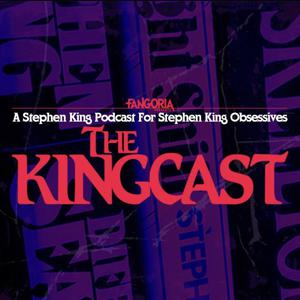 The Kingcast
The Kingcast
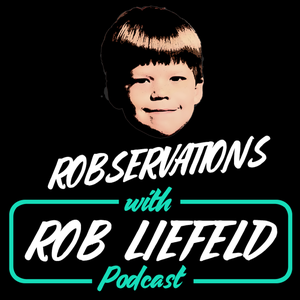 Robservations with Rob Liefeld
Robservations with Rob Liefeld
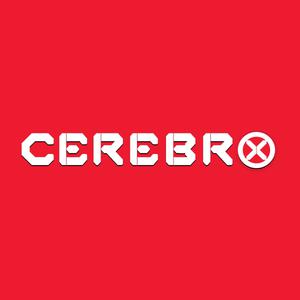 CEREBRO
CEREBRO
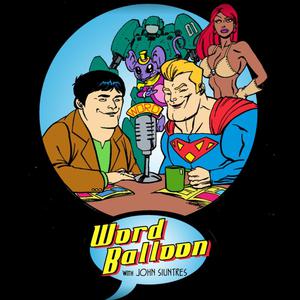 Word Balloon Comics Podcast
Word Balloon Comics Podcast
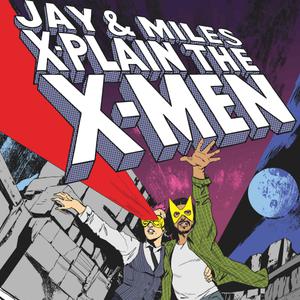 Jay & Miles X-Plain the X-Men
Jay & Miles X-Plain the X-Men
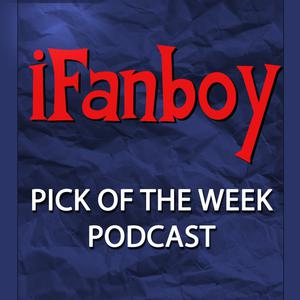 iFanboy - Comic Books
iFanboy - Comic Books